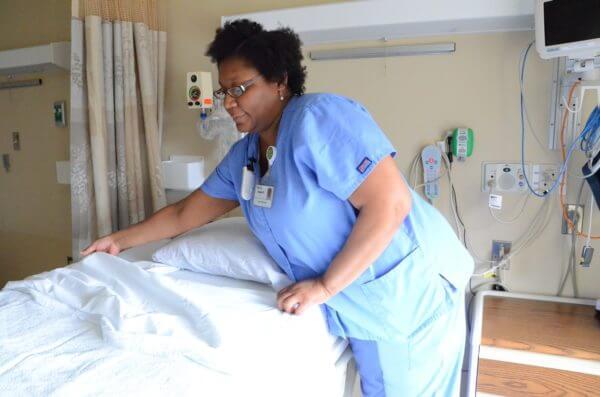Altru Health System is dedicated to bringing the best care possible to every patient in our service area. We build strong relationships with local and regional healthcare partners to create an excellent patient experience.
Altru's One Call Transfer Center
Altru’s One Call Transfer Center nurses are here to help you transfer patients.
To make an emergency or hospital transfer, call 855.4ALTRU1 (855.425.8781). Learn more about the transfer process at Altru.
Outpatient Referral Care Coordination
Providing convenient and continuous medical services to our regional partners is a priority for Altru. By coordinating outpatient care through our centralized Regional Care Coordinator, we've simplified outpatient care transitions.
Please call, 877.247.7745.
Learn more about Altru’s Regional Outpatient Care Coordination.
Regional Emergency Education and Training
Altru Regional EMS will work with you to meet the needs in your community. Class schedules and location may be customized. Practice your skills with quality equipment and experienced instructors. They enhance the learning environment with years of personal experience. Altru's Regional EMS programs have a high pass rate on initial and refresher exams. Altru Health System EMS staff act as an ongoing resource for area EMS agencies creating a valuable network of front line responders.
Contact the Regional EMS Coordinator, AHA Training Center Coordinator at 701.780.1769 for questions or planning.
New Emergency/CPR Instructor FAQs
All instructor cards are issued by the training center coordinator (TCC) who oversees that training center. If you have taken your instructor course through a different training center, you will be issued a certificate of completion or an "Instructor Candidate Application” form. Your training center will issue your instructor card and may require you first be monitored for at least one class by an Instructor Trainer (BLS) or Regional Faculty member (ACLS and PALS).
You are welcome to align with any CTC in the state (and sometimes in a border state.) You may also change your alignment at any time if you relocate, as long as you notify your current CTC of that change. Any rosters already counted by the old CTC will remain with the old CTC. However, the CTC should share information about the number of classes you taught when asked by your new CTC. Many institutions request all their instructors align with the same CTC. This is recommended, but each instructor is free to align with whomever they choose.
Each CTC sets its own policies. Some charge an annual administrative fee, some charge a card processing fee and some a combination. The cost to you will vary depending on your relationship with the CTC (for example, are you an employee). Call around to compare pricing and services to find the best CTC for you.
No, you must align with a CTC. The CTC will serve as your connection to the AHA and will supply you with information and access to course completion and participation cards. In addition, the CTC will keep all your records such as course rosters, instructor monitoring forms, etc. The CTC will also issue your instructor number.
Yes, you can, though you must choose one of them as your primary alignment. If you lead teach for different organizations that are each aligned with different CTCs, it is your responsibility to make sure your course records reach the proper CTC.
If you are an assistant in a class, the AHA recommends you keep a copy of the class roster for your records, but only the lead instructor is required to submit the roster to his or her primary CTC. Your CTC may request a copy of this roster if you have not served as lead instructor for at least two classes per year and they need proof you have taught in at least the required number of classes.
All materials can be ordered from one of four national distributors. Their names and numbers are on the back of every ECC book. The most common option is the AHA ShopCPR webpage. Course participation and completion cards can only be obtained by CTCs and should be distributed after the class roster has been turned in.
In addition to serving as your primary administrative connection to the AHA, the CTC is responsible for quality assurance and supporting chain of survival activities. Your CTC may ask you to help with a mass CPR training, and you may, by sharing your course schedules, find the CTC can help you market your services.







